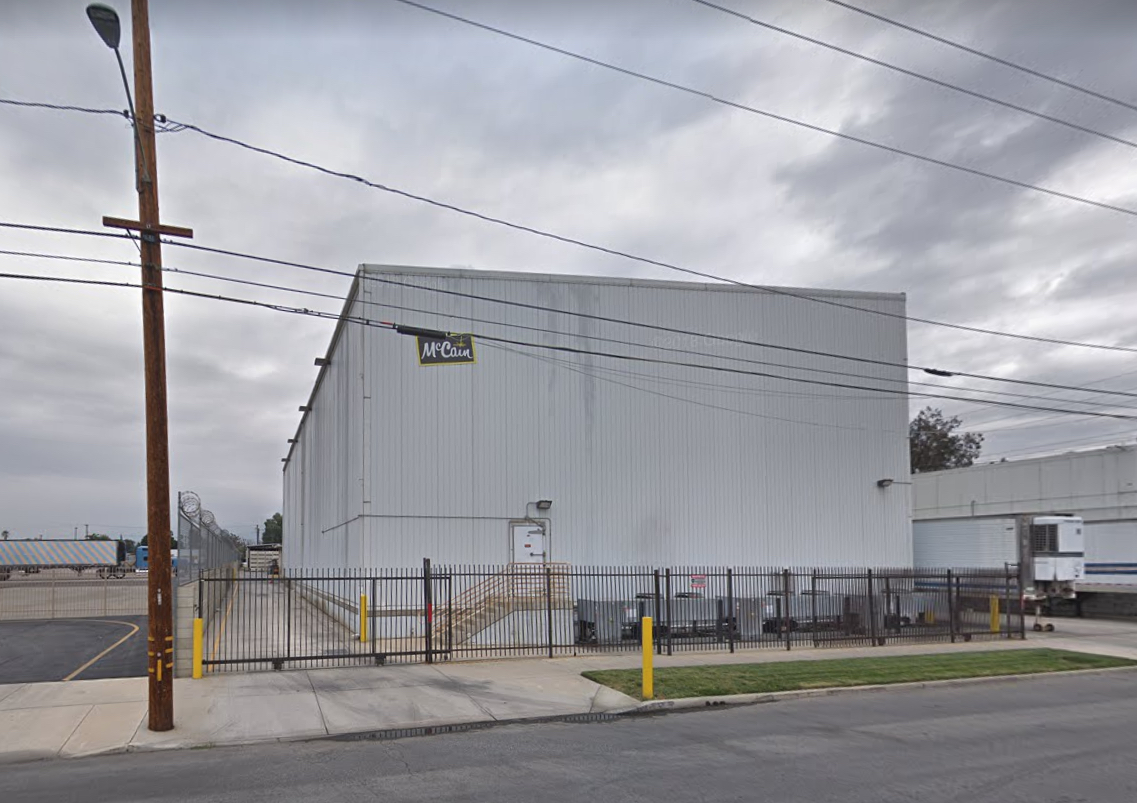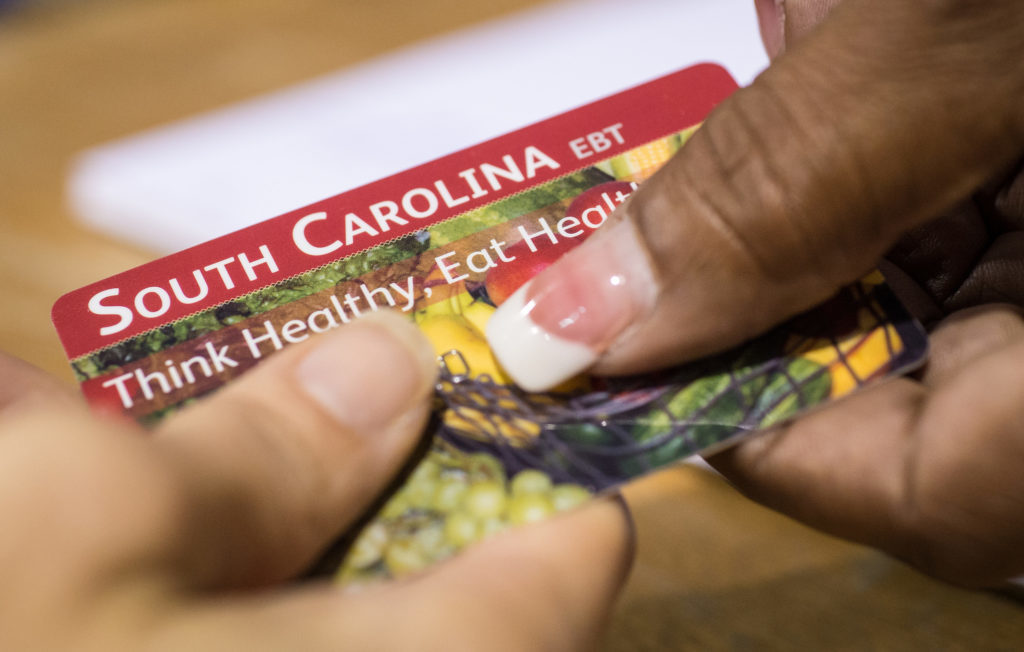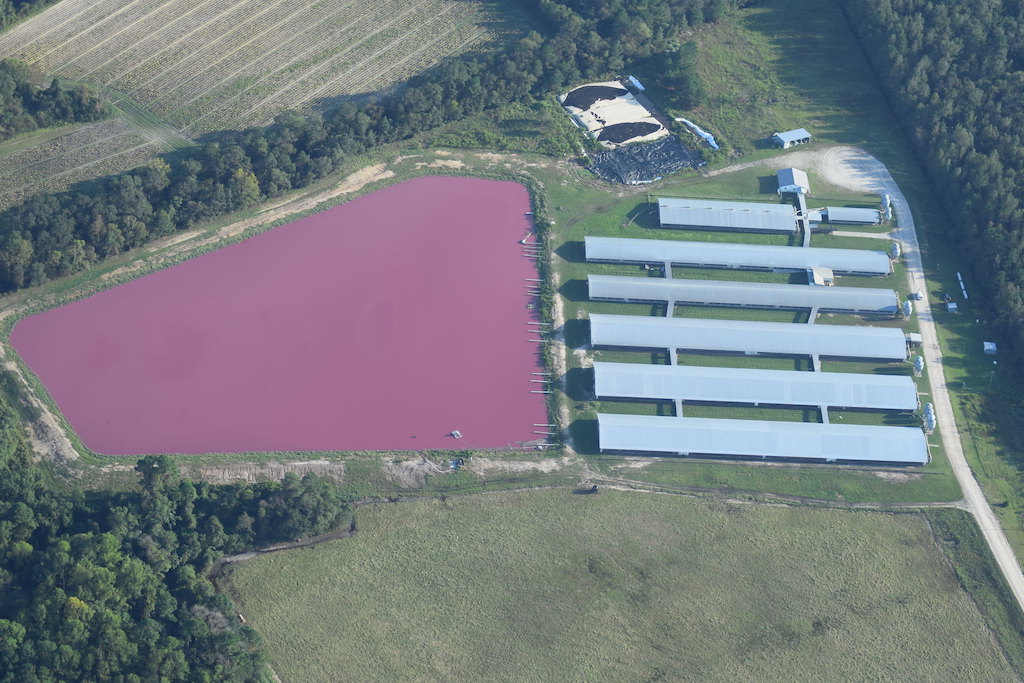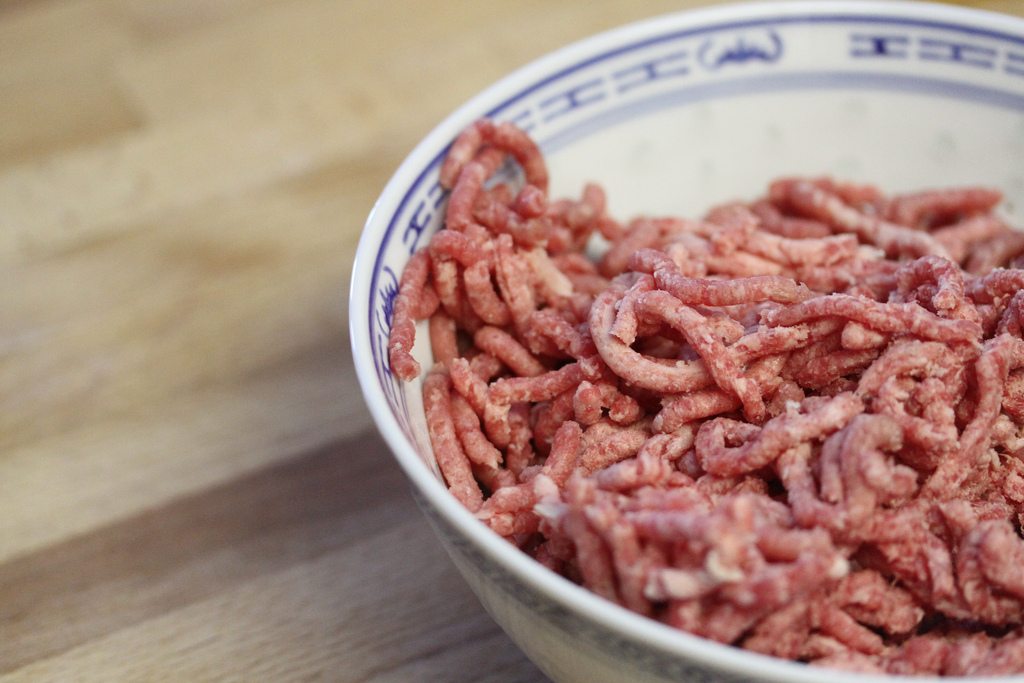
Flickr/NIAID
Could it be that the shocking sentence of Stewart Parnell—in practice a life sentence for the 62-year-old peanut company executive—will be reversed or drastically shortened?
This story was updated at 5:36 p.m. on May 9, 2017.
I’m not counting on it, but I didn’t count on certain people winning last year’s presidential election either. So I’m paying attention. You should too.
In the event the whole appalling affair has slipped your mind, the case involves a massive food contamination episode at Parnell’s Peanut Corporation of America (PCA). A salmonella outbreak in 2009, which killed nine people, sickened at least 700 (half of them children), and led to what has been called the biggest food recall in United States history, was traced back to several of PCA’s processing plants. As new facts came to light, it turned out that PCA had a long history of sanitation problems, that some of the peanuts were processed in an unlicensed plant and others in a plant that had avoided inspection, and that the company had been falsifying lab test results and shipping peanuts that had tested positive for salmonella. Most damning, emails were discovered in which Parnell personally gave the order to ship contaminated product.
Parnell and four other executives (including his brother, Michael, a peanut broker) were tried in 2015. All were convicted, and Parnell, facing a sentence of up to 800 years in prison, was sent away for 28 years. Parnell, his brother, and Mary Wilkerson, PCA’s head of quality assurance, appealed—unsuccessfully. The federal district court that heard the appeal called the case against them “overwhelming.”
Last week, they filed responses with the U.S. Court of Appeals for the 11th Circuit court. As is no doubt typical of this sort of document, the pleading makes it sound as if the U.S. justice system is threatened by the errors and abuses committed in the course of convicting the three: prosecutorial misconduct, concealment of exculpatory evidence, inadequate proof, jury bias.
Of the three convicted defendants, Stewart Parnell is the most interesting—a CEO sentenced to prison for the rest of his life for crimes related to a food safety failure, and a possible indicator of what could happen to senior corporate managers in similar cases in the future. Here are his biggest objections. (If you go looking through the documents, some of Stewart’s case is found in his brother Michael Parnell’s filing. Stewart’s and Wikerson’s filing, to fit within the court’s word-count limits, simply declared that they incorporated large sections of Michael’s.)
The jury was biased. Here’s the funny thing: Though outrage over the PCA case centered around the personal injuries and deaths that occurred, the charges against Parnell didn’t include them directly. He was charged with multiple counts of mail and wire fraud, selling adulterated and misbranded food, conspiracy, and obstruction of justice. In a case like that, prosecutors worry that bringing up the deaths will hopelessly bias the jury against the defendant, so they don’t mention them. And of course, the jurors are supposed to base their verdict solely on what they hear in court. Ideally, they’ll know nothing of the case in advance, and they are not permitted to research it on their own.
In this case, after the verdict was reached, one juror, identified as Juror 34, came forward and said that another juror, Juror 35, had repeatedly stated that deaths had occurred and that the defendants were therefore guilty. Juror 34 also said that there was discussion of the case among the jurors before deliberations began (a no-no) and that some jurors had researched the trial on their own.
Is the situation as bad as it sounds? It’s hard to say. The judge in the trial court reviewed the case, questioned the jurors and concluded that Juror 34 was misremembering something that happened during the jury selection phase, not during the trial itself. Were there jurors who were aware of the deaths? Absolutely. But they had disclosed the fact, stated that they were able to set their knowledge aside, and they were accepted as jurors by the defense. The defense, in its response document, presents an elaborate case for why the appeals court didn’t just make a decision they disagreed with, saying it committed an error, ignoring clear evidence that the jurors knew about the deaths, prejudged the defendants as guilty, and discussed the case inappropriately. Could the argument succeed? Maybe. The charge of jury bias is important and will undoubtedly receive more than its share of attention, but judges are supposed to render opinions about uncertain situations, and the Circuit Court will be looking for clear signs of error.
His fellow conspirators were allowed to testify to too much. A significant portion of the case against Parnell came in the form of documents, which were interpreted for the jury by his former employees and admitted co-conspirators, Samuel Lightsey and Daniel Kilgore. Not fair, say the Parnells. The pair were allowed to give testimony that should come only from experts, whereas for purposes of the trial, they were laymen. There is a legal issue here, but given the strength of the case, will the Circuit Court find that it’s inappropriate to allow co-conspirators to testify about how the conspiracy worked? I wouldn’t count on it.
His sentence was miscalculated. Perhaps the most interesting part of the Parnells’ appeal has to do with their sentencing. Sentences in federal fraud cases like theirs are calculated on a point system, based on degree of culpability and, specifically, how much money was lost. As you might guess, it’s not an easy task to fully document losses; the companies involved have little reason to invest in compiling original business records that might run to hundreds or thousands of pages. And courts, faced with documentation from tens or hundreds of customers, might well find it hard to dig the needle out of the haystack. Nonetheless, it appears that the case law cited by Parnell’s lawyers demands full documentation of the fact that the losses incurred by PCA’s customers exceeded $20 million. Without that documentation, says the appeal document, Parnell’s maximum sentence is not 28 years, but 37 to 46 months.
Now, the jurors in the case weren’t supposed to know about the deaths caused by Parnell’s actions, and the judge wasn’t supposed to consider them. (Selling misbranded and adulterated food can’t be the basis of a federal felony murder charge. Once again, the bank robber takes it on the chin, and the corporate executive skates free.) But you’re not on the jury. You know, and you’re allowed to have your own opinion. So I ask you: Even if you think 28 years is too great a sentence, is 37 to 46 months enough? That translates into four or five months per death. You can get five years for carrying a gun during a violent felony, even if you don’t use it. Does it really sound equitable?
Public policy. Were you thinking that a long sentence for executives who deliberately put contaminated food into the market might discourage others from doing the same? Stewart Parnell has a different take: His filing argues that because food recalls in the U.S. are generally voluntary, Parnell’s sentence will discourage companies from doing the right thing. “[W]here a sentence has the effect of encouraging conduct that is inconsistent or detrimental to a stated public policy, that sentence should be vacated.”
Look, let’s be fair. Stewart Parnell faces the prospect of spending the rest of his life in prison for playing fast and loose with food safety—something that’s never happened before in this country. (If you take a more global view, he should feel lucky. In China a few years ago, when an official in the country’s drug safety administration was convicted of taking bribes, he was taken out and shot.) Parnell’s entitled to argue his case as aggressively as possible, even if it sounds cynical and self-serving to the rest of us.
But this point crosses the line for me. Sure, if you’re running a food plant and you discover that you’ve inadvertently shipped a contaminated lot, there should be some protections from prosecution if you take prompt action to make things right. But that’s not what Parnell did. He made his customers think that food had been tested when it hadn’t, that it tested clean when it didn’t, and he shipped food when he knew it was contaminated. There’s no public-interest reason to make other executives think that behavior of that sort is OK.
He did it knowingly. People died.










